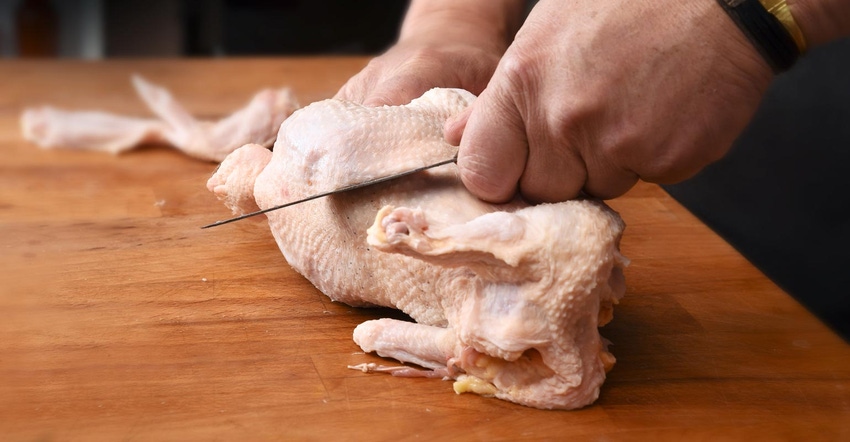September 28, 2020

Innovation has been a hallmark of America for hundreds of years. In fact, it has been more than 120 years since the U.S. first surpassed the British Empire as the largest economy in the world because of our desire to innovate.
Rewinding back to the early 1900s, the first radio broadcast was heard from Massachusetts, the assembly line was invented to manufacture the Ford Model T vehicle, and the federal Meat Inspection Act of 1906 was passed. Teddy Roosevelt was president.
At that point in American history, about 60% of Americans still lived on the farm. With 40% of the population living in major cities, our country faced a challenge we had never seen before. Some families still were raising their own milk, eggs and meat, but that standard was changing for many American families. We began to feed each other, instead of just our own families.
Because of our thriving economy, we also began to see a population boom that further increased the need for a larger amount of safe, nutritious and wholesome protein. I imagine there was at least one local butcher shop in every town across America, large and small.
Our team at the Missouri Department of Agriculture (MDA) answers dozens of questions each day related to meat processing laws. Farmers, ranchers and agribusiness owners want to know what they can do to help feed their neighbors both safely and legally. Almost all our answers go directly back to the legislation that was created more than 100 years ago.
Law changes over time
The federal Meat Inspection Act of 1906 gave USDA deeper authority to inspect cattle, swine, goats, sheep and horses before, during and after processing. It also created uniform sanitation standards for American protein products, while applying those same cleanliness standards to imported meat. Over time, the legislation has been amended to keep up with changes in the livestock and meat processing industries.
In the 1950s, demand for poultry products at the grocery store grew because fewer Americans owned chickens for their own use. As a result, the federal Poultry Products Inspection Act of 1957 was passed, bringing poultry under federal inspection standards as well.
Today, USDA works closely with state inspection teams such as ours at MDA to carry out these laws. We are one of 27 state programs that provide inspection services for our meat processing establishments that perform custom-exempt and state-inspected processing.
This team is one of the best in the nation, providing equal inspection service within the state of Missouri as USDA.
Options for private processing
The levels of inspection are meant to provide a food-safety infrastructure that protects our families and minimizes risk in the event something goes wrong. However, there exceptions to the federal meat inspection law.
Producer-grower exemption for poultry. Poultry owners may process up to 1,000 poultry on their farm within a calendar year for sale to consumers within the state under this exemption. It requires registration with our Missouri Meat and Poultry Inspection Team, as well as adherence to the basic sanitation standards of federal meat inspection laws.
Custom-exempt processing. Using an exemption from the federal meat inspection laws, livestock owners may have their own animals processed for meat at a local butcher shop. This meat is marked “not for sale,” and may only be consumed by the livestock owner, members of their family and nonpaying guests. Livestock owners may sell their live animals to customers interested in having the meat processed from that animal. These products are not eligible for donation.
State-inspected processing. Livestock owners can have their animals processed under state inspection for sale and distribution within Missouri’s borders. The meat processed by these establishments can be sold by the cut.
Cooperative Interstate Shipment agreement. Recently, the state of Missouri entered into a CIS agreement with USDA. This means that Missouri establishments may apply through MDA to be “selected” by USDA as a CIS establishment. Those establishments selected for CIS would be able to use our state inspection team to process meat for sale and distribution over state lines.
Federal-inspected processing. Establishments processing livestock under federal inspection may process animals for sale and distribution anywhere in the U.S. Many times, federally inspected meat also is exported around the world.
As a livestock owner myself, I appreciate the standards set by our food-safety laws. Our family takes great pride in raising high-quality beef and pork for consumers. Meat purchased in the grocery store often represents the only connection my family farm has with the average consumer.
Knowing that this framework is in place to ensure every customer’s experience is positive, I have a better peace of mind. I’m confident the meat sold in our grocery stores and local butcher shops is safe for our consumers.
To learn more about our Missouri Meat & Poultry Inspection Team, visit our website at agriculture.mo.gov.
Chinn is the director of the Missouri Department of Agriculture and a hog producer from Clarence, Mo.
About the Author(s)
You May Also Like




